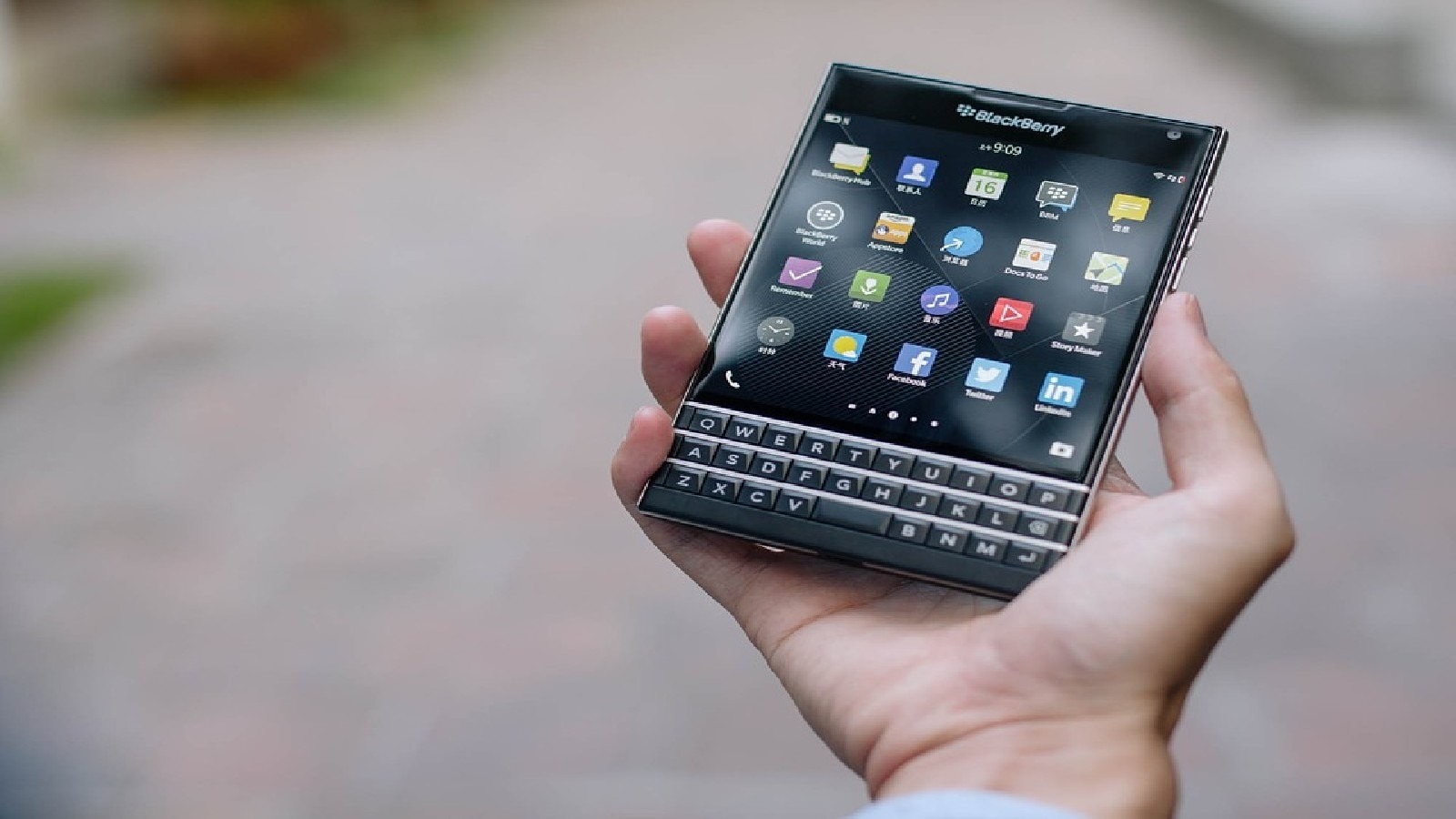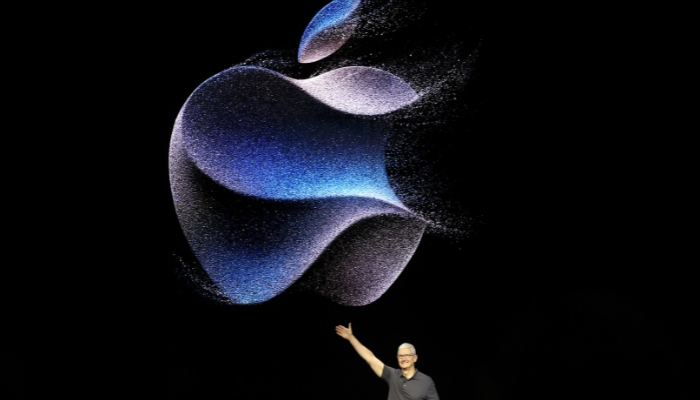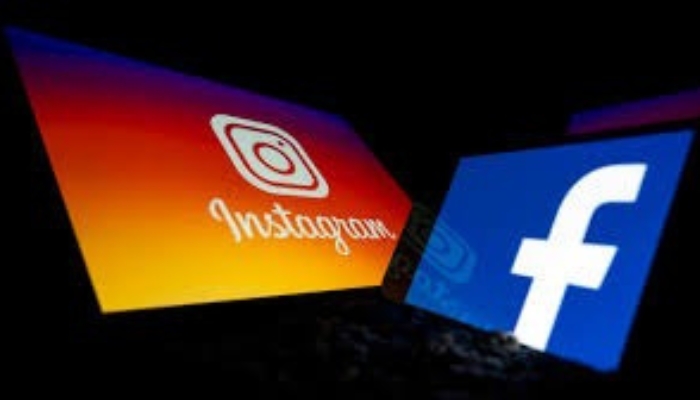
Last updated on December 13th, 2023 at 12:18 pm
The ascent and descent of the BlackBerry, famously known as the ‘crackberry,’ marked a pivotal shift in technology and a symbol of prestige. However, what led to the eventual decline of this pioneering smartphone, and why were the executives caught off guard by it?
A decade and a half ago, there was no greater emblem of status than the BlackBerry. Celebrities like Lady Gaga, Madonna, and Kim Kardashian were avid users. Even President Barack Obama fought adamantly to retain his device. In a fit of anger in 2006, Naomi Campbell famously hurled a BlackBerry at a housekeeper. They were ubiquitous, to say the least.
Yet, when was the last instance you pondered about BlackBerry? Was it a year ago? A decade ago? Even longer? BlackBerry presently occupies an exceptionally peculiar position in our culture. It stormed in with such revolutionary force – offering the freedom to send emails, liberating users from the confines of the office – only to be swiftly supplanted when Apple introduced the iPhone. The abrupt and drastic ebbs and flows of BlackBerry’s trajectory have now become almost unfathomable.
Fortunately, a new film is here to narrate the entire saga of BlackBerry, spanning from its inception to its conclusion. Adapted from the book “Losing the Signal: The Untold Story Behind the Extraordinary Rise and Spectacular Fall of BlackBerry,” the film propels us through the entire tumultuous journey. It follows two somewhat unseasoned Canadian engineers, Mike Lazaridis and Douglas Fregin, who invent the world’s inaugural smartphone. Assisted by Glenn Howerton’s fervent capitalist character, Jim Balsillie, they ride a meteoric rise before crashing back down to Earth. In an era where films are being made about the inception of nearly every conceivable real-world product, from sneakers (Air) to video games (Tetris) to potato chips (Flamin’ Hot), BlackBerry emerges as one of the most thoroughly entertaining tales.
It might even reshape our historical perspective a bit. Looking at it now, it’s simple to label BlackBerry as a complete failure, as the device we had to settle for until Steve Jobs revolutionized the industry. It’s effortless to group BlackBerry with other outdated entities that failed to see the transformative waves approaching, akin to Blockbuster Video, Friends Reunited, or traditional journalism.
Yet, the film adeptly illustrates that, during a certain period, BlackBerry was at the forefront. It identifies the precise moment when people grasped the potential of the device, leading to a profound shift in their lives. “I was in New York, working on a book, and I noticed everyone had these devices called BlackBerrys,” recounts author and tech writer Jonathan Margolis. “People were informing me that they could send emails, and I distinctly remember thinking, ‘No, you must be mistaken, you’re sending SMS text messages.’ But then a friend sent me an email from their phone, and I had to return home to retrieve it on my PC. It was extraordinary.”
However remarkable the technology was, the genesis of the film stemmed from another source. Speaking over Zoom from his residence in Toronto, director Matt Johnson, who also co-wrote the screenplay and portrays Fregin, elucidates that he was initially drawn to the dynamic blend of personalities at the core of the company. “I felt a certain kinship with both Jim and Mike,” he remarks about the two diametrically opposed figures central to the narrative. On one side, Lazaridis was a visionary perfectionist, meticulously fixated on every detail until it met his exacting standards. Then there was Balsillie, whose unbridled pursuit of wealth permeates every scene. Which aspect of him did Johnson recognize in himself?
“The notion of essentially seizing as much power as possible for no particular reason,” he chuckles. “Simply to have power. Yes, that interplay between those two elements, I really identified with it; I found it very easy to comprehend why they were each driven to do what they did.”
Though the BlackBerry may now carry a touch of nostalgic charm, its impact on the world was immeasurable. It’s worth remembering that the iPhone was specifically crafted to dethrone the BlackBerry. In the late 2000s, attempting to become a “BlackBerry killer” was the technological equivalent of confronting the biggest figure in a prison yard and taking a swing. And it was all so overt. Steve Jobs had BlackBerry so squarely in his crosshairs that he disdainfully displayed an image of one onscreen during its launch, clearly indicating what he aimed to obliterate. If we were still living in a world dominated by flip phones and numerical texting, there’s a possibility that Jobs might not have exerted such effort to craft the perfect phone, resulting in a world unrecognizable to us today.
The BlackBerry wasn’t merely a gadget celebrities occasionally used to confront their employees. It played a pivotal role in revolutionizing the way people worked. Possessing a BlackBerry, and subsequently any smartphone, meant you weren’t confined to a desk in a fluorescent-lit office to stay connected. It signified carrying the office with you wherever you went. You could attend to emails at night, during vacations, or even in the restroom.
Today, this is standard practice, but at the time, it was a significant statement. If you had a BlackBerry, you were signaling to the world that you were busier than most. It implied you were indispensable. People reached out to you round the clock, and thanks to your choice of phone, you could finally respond promptly.
It was also highly addictive. Not only was a BlackBerry satisfying to hold, but its incessantly blinking notification light served as a constant reminder of the digital world you might be missing out on. This led to the term “crackberry,” signifying the phone’s ability to inspire obsession, being named the 2006 Webster’s New World College Dictionary word of the year. However, they also came with potential downsides. “BlackBerry thumb,” or De Quervain tenosynovitis, was dubbed “the plague of the wired generation” in 2007.
Yet, arguably, it was all worth it. This might be hard to grasp unless you experienced it firsthand, but the BlackBerry boasted a keyboard—a full Qwerty keyboard that allowed you to type with both thumbs, vastly simplifying the act of typing. Before this innovation, written communication was a genuine ordeal. Recall the frustration of sending text messages on a numerical keypad, where you had to press each key multiple times to cycle through to the right letter.
Consider how arduous it was to spell out the word “fizzy” on an old brick phone. First, you had to press the three button three times, then the four button three times, followed by the nine button four times. You then needed to pause to allow the cursor to move, press the nine button four more times, pause again, and finally press nine three more times. It took an eternity. If the BlackBerry era can be defined by anything, it’s likely the profound relief of only having to press one button once for each letter.
However, the excitement was fleeting. The moment the iPhone was introduced, BlackBerry sales plummeted dramatically and never managed to regain their former glory. Margolis speculates that a certain level of overconfidence within BlackBerry might have expedited its decline. “BlackBerry had grown rather complacent,” he elaborates. “There was a period when they believed that typing on a flat glass surface wouldn’t succeed, but within a year, the tactile typing method of BlackBerry appeared entirely outdated.”
Interestingly, Johnson’s film implies that the downfall began when BlackBerry lost its vibrant and amiable co-founder, Fregin, who was pushed out as the corporate landscape closed in around the company.
“This is something I strongly believe in,” Johnson emphasizes. “The concept that there’s an element that might not overtly impact the bottom line, but fosters a harmonious, egoless positive environment, where individuals are treated as people and are inclined to go above and beyond what’s asked of them.” To Johnson, Fregin’s departure symbolized nothing short of the spiritual demise of the company.
As an entity, BlackBerry is now effectively defunct. No phones have been produced since 2016. In that same year, the widely followed photo blog, Celebrity BlackBerry Sightings, ceased operations with the message: “Unfortunately, all the celebrities now own an iPhone, this is so sad.” Finally, last January, the company discontinued all its services for any phones still operating on its platform. However, this hasn’t dissuaded some devoted enthusiasts.
“I’ve encountered hundreds of them,” Johnson shares. “The issue they face is that there are no longer servers in Waterloo for transmitting and receiving information. The diehard BlackBerry users no longer have a dedicated network like they used to, but there are many individuals who’ve modified their BlackBerrys to function on whatever 5G networks are available in their vicinity. However, it’s not quite the same.”
The enduring impact of BlackBerry on our world remains somewhat uncertain. The ripples from its inception still resonate in reality. On one hand, the shift towards remote work that we’ve witnessed since the onset of Covid-19 would likely not have been conceivable before BlackBerry. We continue progressing towards a future where numerous occupations can be executed from virtually anywhere. Conversely, this latitude to work from any location has resulted in burnout and fatigue, eroding the once-clear boundaries between work and personal life. If you’ve ever received an email from your boss at 11pm, expecting an immediate reply, it’s probably BlackBerry that deserves some of the blame.
However, Matt Johnson perceives things in a slightly different light. Since creating a film about BlackBerry, he’s noticed that people regularly share their recollections of it with him, regardless of his outwardly indifferent stance towards the company. One sentiment has consistently emerged.
“The overall legacy of BlackBerry is one of a company that failed to anticipate the changing landscape,” he elucidates. “Yet, there’s also a prevailing sense of ‘Oh, what a pity?’ about it. It’s quite amusing, because it’s rare to find a populace that empathizes with a billion-dollar corporation. More often than not, they’re viewed as the villain, yet here’s one where everyone regards it almost as if it were a departed family member. Hundreds of colossal companies falter, and they hardly get a second thought. But for some reason, BlackBerry elicits a human response.”
Could it be because the product had such a tangible quality?” he ponders further. “Yet, BlackBerry’s reputation is akin to that of a small family-owned business, which is quite ludicrous considering the scale, influence, and ambition of the company. In many respects, I believe the current perception of the company is diametrically opposed to what someone like Jim Balsillie would have envisioned. It’s almost like, ‘Oh, you managed a company? Oh, that’s sweet. Oh, I’m so sorry.’ Which is rather belittling. It’s a demeaning reaction. But, I mean, that’s the paradox of BlackBerry in many ways.”
Johnson also emphasizes that what transpired with BlackBerry won’t be the sole instance of such a shift. Public preferences are capricious, and it only takes one new contender with a groundbreaking invention to revolutionize an entire industry. We might currently reflect on BlackBerry with a sort of bewildered nostalgia, but it’s inevitable that someday something will emerge to surpass the iPhone. And what a remarkable story that would be for a movie.





